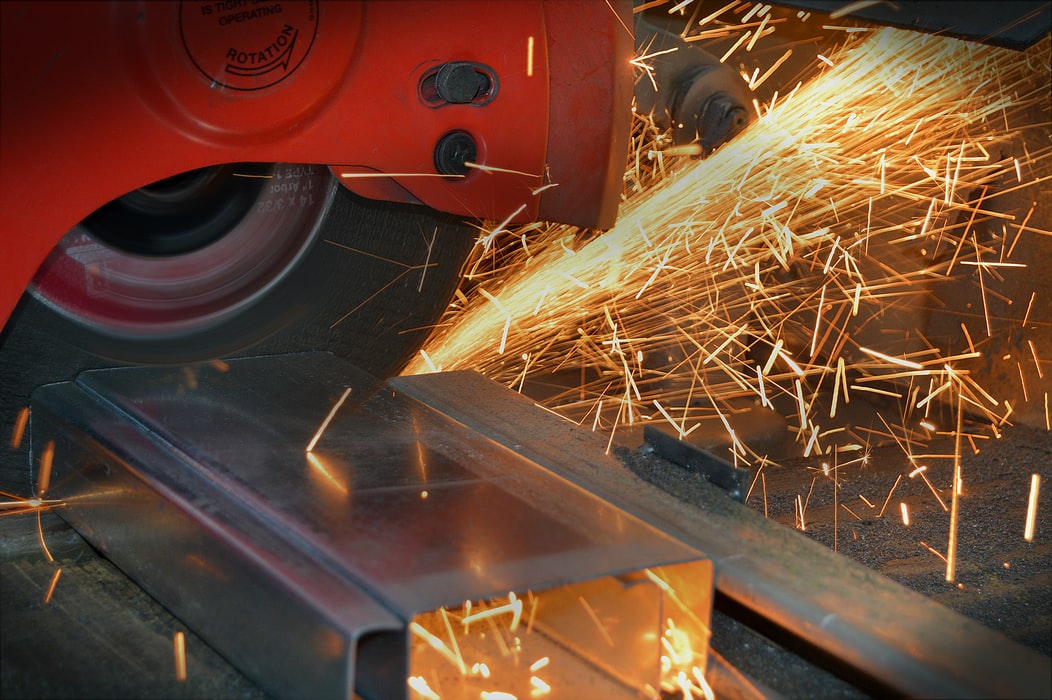BLOG
HSE inspecting fabricated metal businesses regarding respiratory risks
Written by Nick Wilson on 12 February 2021

The Health and Safety Executive (HSE) has announced a new inspection blitz focused on fabricated metal businesses.
Businesses across Great Britain whose workers carry out welding or use metalworking fluids are being targeted. Checks are to ensure firms manage the respiratory risks of welding fumes and metalworking fluids, and that relevant HSE guidance is being complied with.
As an employer, you are legally required to control the risks to workers from exposure to hazardous substances. During visits, you will need to demonstrate that you have measures in place to:
- Manage the risks associated with welding fumes and metalworking fluids.
- Protect workers’ respiratory health and prevent occupational lung disease.
12,000 fatalities
Scientific evidence indicates that inhaling fume from welding causes lung cancer. Inhaling mist from metalworking fluids is similarly linked to a range of lung diseases, including occupational asthma and occupational hypersensitivity pneumonitis (OHP). Accordingly, inspectors will look for evidence that:
- You and your workers know the risks.
- Work is correctly planned to minimise risk.
- Adequate control measures are in place to protect workers’ health.
While the regulator’s primary focus will be on lung health, if inspectors identify other areas of concern, they will take the necessary enforcement action. This includes making sure businesses are COVID-secure.
Clare Owen, the HSE’s manufacturing head, said: “12,000 people died last year from lung diseases estimated to be linked to past exposure from work, with thousands more cases of ill health and working days lost. We want businesses whose workers use metalworking fluids and undertake welding activities to take action now to protect their workers’ respiratory health.”
Ms Owen adds: “Our inspection initiative aims to ensure employers and workers are aware of the risks associated with the activities they do. They must recognise these dangers and manage these risks through reducing exposure.”
Related Content
Do you need support?
Speak to us for an honest, no obligation chat on:
0345 226 8393 Lines are open 9am – 5pm
Tips for a stress-free inspection
The HSE has said it will “no longer accept any welding undertaken without any suitable exposure control measures in place, as there is no known level of safe exposure”. As such, employers found not to be following the guidance can expect an improvement notice as a minimum.
First, make sure to update your risk assessment. The Control of Substances Hazardous to Health Regulations 2002 (COSHH) require employers carry out a suitable and sufficient risk assessment for those exposed to welding fumes and metalwork fluids. The HSE says it expects suitable engineering controls to be in place for all indoor welding activity such as local exhaust ventilation (LEV). Where LEV alone doesn’t adequately control exposure, it should be supplemented by adequate and suitable respiratory protective equipment (RPE) to protect against residual fume. Where LEV is installed, ensure you have had the required statutory thorough examination and test by a competent person, at least every 14 months.
For outdoor welding, inspectors will expect suitable RPE to be used. Workers should be trained to correctly use the provided RPE and LEV – it should be suitable for the task and maintained in good condition.
Exactly what controls are required in managing metalworking fluids will depend on the circumstances. However, as a general rule, work activities and operations should be designed to minimise emissions and contact with metalworking fluids. This may involve enclosing a process or the use of LEV. Where exposure can’t be adequately controlled, controls should be in place to minimise exposure and suitable personal protective equipment provided. Workers should receive adequate information, training and supervision.
Use the HSE’s welding guidance and resources to prepare for inspection.

Head of Compliance, GFM Ltd
Fulfil your safety duties with specialist support
If metalwork is only a minor part of your activity, you may not be specifically targeted. However, be warned – if inspectors are on site for other reasons and they spot that you’re carrying out this type of work, they are likely to bring it up. Similarly, if you are targeted as part of this campaign, other aspects of your health and safety management may come under the spotlight.
If you’re not fully confident in your compliance, Ellis Whittam can support you to proactively protect your workers from harm and help your business stand up to regulator scrutiny. To find out how our fixed-fee Health & Safety service can help your fabrication or manufacturing business to ensure a smooth, successful inspection and stay on top of your responsibilities on a daily basis, call 0345 226 8393 or request your free consultation using the button below.
Sign up for the latest news & insights
Resources
Latest News & Insights

Language of appreciation at work | Why individual motivation matters
BLOG Written by Becs Bridge, Director of Learning & Development, on 23 January 2026 In today’s competitive talent market, the organisations that retain top performers

Recruitment trends 2026 | 7 things to expect when hiring this year
BLOG Written by Danielle Fargnoli-Read on 22 January 2026 If there’s one thing recruitment has taught us over the past few years it is that

Breach of employment contract | What employers need to know to avoid Tribunal claims
BLOG Written on 15 January 2026 Breach of contract is a common concern for businesses, particularly during resignations, dismissals, or disputes over pay, notice, or

When does the Employment Rights Bill come into effect?
BLOG Written on 19 December 2025 It’s been the most talked-about topic in HR in 2025 – and the question everyone’s been asking is “when

Workforce planning | Structuring your business for success
BLOG Written by Danielle Fargnoli-Read (Updated February 6th 2026) Strategic workforce planning is a vital business process that’ll align your organisational needs with long-term goals.

Changes to day one unfair dismissal rights | New six-month protection explained
BLOG Written by Patrick Carroll-Fogg on 1 December 2025 Of the almost 75 individual tweaks and changes set to be introduced under the Employment Rights

Breaking down the Budget 2025 for employers
BLOG Written by Daniel Rawcliffe on 27 November 2025 The recently announced UK Budget 2025 is a challenging one for small businesses. While it covers

AI for interviews with job candidates | Balancing technology with a human touch
BLOG Written by Danielle Fargnoli-Read and Tracey Burke on 21 November 2025 Businesses using AI for interviews are reshaping the way UK businesses approach hiring,

Workplace risks revealed | HSE 2024/25 report shows rising injuries and ill health
BLOG Written on 21 November 2025 Providing a safe, healthy workplace should be a top priority for all employers. But how well are workplaces actually




